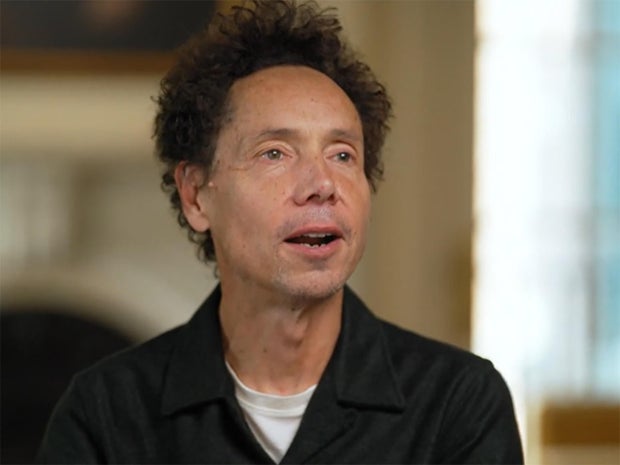CBS News
This grandfather was mistakenly identified as a Sunglass Hut robber by facial recognition software. He’s suing after he was sexually assaulted in jail.

A 61-year-old grandfather is suing Sunglass Hut’s parent company after the store’s facial recognition technology mistakenly identified him as a robber. Harvey Eugene Murphy Jr. was subsequently held in jail, where he says he was sexually assaulted, according to the lawsuit.
The January 2022 robbery took place at a Sunglass Hut store in Houston, Texas, when two gun-wielding robbers stole thousands of dollars in cash and merchandise.
Houston police identified Murphy as a suspect – even though he was living in California at the time.
When Murphy returned to Texas to renew his driver’s license, he was arrested. He was held in jail, where he says he was sexually assaulted by three men in a bathroom. He says he suffered lifelong injuries.
The Harris County District Attorney’s office in Texas determined Murphy was not involved in the robbery – but the damage was already done while he was in jail, his lawyers said in a news release.
Facial recognition is often used to match faces in surveillance footage – such as video of a store robbery – with images in a database. The system often uses booking photos, but the software can also search driver’s license photos, meaning if you have a license, your picture might have been searched even if you’ve never committed a crime.
Murphy has a criminal record from the 1980s and 1990s, meaning he likely has a booking photo. His lawyers said those offenses were not violent and he has built a new life in the last 30 years, according to the press release.
He is now suing Sunglass Hut’s parent company EssilorLuxottica and Macy’s, a partner of the company. The head of EssilorLuxottica’s loss prevention team said they worked alongside Macy’s and had identified Murphy as the suspect using facial recognition software.
Murphy’s attorneys are arguing that facial recognition is error-prone and low-quality cameras were used, increasing the probability of a mistake in identifying a suspect.
A Sunglass Hut employee identified Murphy as the suspect in a police photo lineup – but Murphy’s lawyers allege the loss prevention team met with her before that, possibly tainting the investigation.
“Mr. Murphy’s story is troubling for every citizen in this country,” said Daniel Dutko, one of the lawyers representing Murphy. “Any person could be improperly charged with a crime based on error-prone facial recognition software just as he was.”
In facial recognition used by law enforcement offices like the FBI, complex mathematical algorithms are used to compare a picture of a suspect’s face to potentially millions of others in a database. But it has its flaws.
In 2023, the Federal Trade Commission banned Rite Aid from using the technology after the company’s faulty system had employees wrongfully accusing shoppers of stealing. In one incident, an 11-year-old girl was stopped and searched by a Rite Aid employee based on a false match.
The FTC said this faulty technology often incorrectly misidentifies Black, Asian, Latino and women consumers.
In 2023, a woman sued the Detroit Police Department after authorities misidentified her as a carjacking suspect using facial recognition technology. Porcha Woodruff, who was eight months pregnant at the time of her wrongful arrest, went to jail after being incorrectly identified in a police lineup. Detroit Police Chief James White says Woodruff’s photo should not been used in the lineup to begin with.
CBS News reached out to EssilorLuxottica for comment is awaiting response. Macy’s declined to comment. Murphy’s lawyers had no additional comment.
CBS News
New Zealand reclaims world record for largest mass haka

New Zealand on Sunday reclaimed the world record for the largest mass haka after more than 6,000 people performed the legendary Maori war dance, dethroning France.
The record was broken in deafening fashion at Eden Park rugby stadium in Auckland, where thousands of men, women and children combined on the pitch to complete the traditional native challenge involving vigorous movements, stamping feet and rhythmic shouting.
An adjudicator confirmed that 6,531 participants had performed the ‘Ka Mate’ haka, a rendition made famous by the All Blacks rugby team, who perform it immediately before Test matches.
France had held the world record since September 2014 when 4,028 people slapped their thighs and bellowed the chant following a rugby match in France Brive-la-Gaillarde, southwestern France.
Auckland organizers had hoped for up to 10,000 participants but were nevertheless pleased the record had been reclaimed by New Zealand, where the haka is regarded as a national treasure.
“We want to bring the mana (pride) of the haka back home,” Michael Mizrahi, director of the Auckland attempt, told AFP. “It’s not just that we want to take it off the French, it’s like a national treasure that somebody has taken from us. It’s got enormous meaning for us as New Zealanders.”
He added: “Some things should be culturally sacred.”
DJ MILLS/AFP via Getty Images
Previous attempts involving crowds of more than 5,000 on New Zealand soil failed because Guinness World Records officials didn’t ratify them, Mizrahi said.
This time around, an adjudicator was flown to Auckland.
The Ka Mate haka was composed around 1820 by the warrior chief Te Rauparaha to celebrate his escape from a rival tribe’s pursuing war party.
Under New Zealand law, a Maori tribe, the Ngati Toa, based in Porirua just outside Wellington – are recognized as the cultural guardians of the Ka Mate haka.
CBS News
Malcolm Gladwell on “Revenge of the Tipping Point”

Watch CBS News
Be the first to know
Get browser notifications for breaking news, live events, and exclusive reporting.
CBS News
Malcolm Gladwell’s life has changed; he has not

On Tuesday, a new Malcolm Gladwell book comes out. And if history is any guide, it will be a bestseller. “They’re stories about ideas,” he said. “They have characters. They have plots. I’m usually trying to say something about the world.”
His first book, “The Tipping Point,” published in 2000, established the Gladwell recipe: he explores a theme through anecdotes and little-known scientific studies. “‘Tipping Point’ was about the epidemic as an incredibly useful way of understanding how ideas move through society,” Gladwell said. “And epidemics have rules. Let’s learn the rules, right?”
His seven New York Times bestsellers have sold 23 million copies in North America alone. His fee for corporate speeches is $350,000. His fans have downloaded a quarter-billion episodes of his podcast, “Revisionist History,” and he founded a company called Pushkin Industries to produce it.
CBS News
In other words, Gladwell has come a long way from the small Canadian town where he grew up, son of a British father and a Jamaican mother, whom he describes as “subversive,” someone who would write notes to excuse her son from class with a blank space. “I would just fill out the date,” said the man who skipped a lot of school.
He attended the University of Toronto, but his best education was the ten years he worked for the Washington Post. “I knew nothing about newspapers,” he said. “I was so raw. I was 23, I think, or 24. Bob Woodward was two rows away from me. I learned at the feet of the greatest journalists of my generation.”
In 1996, Gladwell joined The New Yorker. He wrote about why, in the 1990s, New York’s crime rate plummeted in an article called, “The Tipping Point.” A book followed. It introduced a recurring Gladwellian theme: hidden patterns in the way the world works.
He’s a world-class contrarian, about college (“You should never go to the best institution you get into, never; go to your second or your third choice. Go to the place where you’re guaranteed to be in the top part of your class”); about working from home (“It’s not in your best interest to work at home. … If you’re just sitting in your pajamas in your bedroom, is that the work life you want to live, right? Don’t you want to feel part of something?”); about football (“I think the sport is a moral abomination”).
Gladwell says he enjoys being provocative: “Of course!” he said. “I like poking the bear. I mean, journalists should poke the bear.”
CBS News
Gladwell’s fans love his storytelling, and the A-ha! moments they bring. His critics, on the other hand, have described his writing as “generalizations that are banal, obtuse, or flat wrong,” and “simple, vacuous truths [dressed] up with flowery language.” “I’m with the idea that not everyone’s gonna like my work,” Gladwell said. “100% of people don’t like anything.”
In a 2021 “Sunday Morning” interview, Gladwell said, “I would rather be interesting than correct.” He called that “an overly provocative way of saying things! No, I think what I meant was, if I turn out not to be right, I’m not devastated. I accept that as the price of doing business.”
Gladwell often turns his mistakes into new chapters or podcast episodes. In “The Tipping Point,” he explained that New York’s crime drop was the result of “broken windows policing.” As he described it, “Little crimes were tipping points for big crimes.” But that philosophy led to New York’s policy of “stop and frisk.”
“Doing 700,000 police stops a year of young Black and Hispanic men is deeply problematic,” Gladwell said. “We were wrong. I was part of that. I’m sorry.”
Which brings us to the new book, “Revenge of the Tipping Point.” “The original ‘Tipping Point’ is a very optimistic, rosy book about the possibilities for using the laws of epidemics to promote positive social change,” he said. “In the last 25 years, I spent a lot of time thinking about the other side of that problem, which is, what happens when people use the laws of epidemics in ways that are malicious or damaging or self-interested?”
Little, Brown & Co.
The book’s stories range from topics as obscure as cheetah reproduction, to stories as big as the Holocaust. He writes that almost nobody talked about the Holocaust, or even called it that, until NBC aired a miniseries called “Holocaust” in 1978. “And what changed happened like [snaps fingers]. I mean, it was just there was a tipping point in our understanding of the Holocaust,” he said.
This book arrives at a tipping point in Gladwell’s own life. In a span of five years, he got engaged, had two children, turned 61, and moved from Manhattan to pastoral Hudson, New York. “It’s a lot to handle. There isn’t a single person who ever lived whose parents did not say, ‘This is a lot!'” he laughed. “I have become the person that, you know, I once despised, and nothing makes me happier.”
He also despises Ivy League colleges, accusing them of prioritizing their own reputations over focusing on their students.
Has parenthood affected his outlook on any of the things that he’s written about before? “Well, it’s prepared me for the possibility that I will be a massive hypocrite!” Gladwell laughed. “So, you know, it’s one thing to write about what you should do with your kids when you don’t have them.”
For all his success, Malcolm Gladwell maintains that nothing has changed in his approach, his work ethic, or his contrarianism. “It hasn’t changed what I do,” he said. “I don’t farm out my research; I still go on reporting trips. It hasn’t gotten old. In fact, my great regret is I don’t have time to do more.”
READ AN EXCERPT: “Revenge of the Tipping Point” by Malcolm Gladwell
For more info:
Story produced by Wonbo Woo. Editor: Remington Korper.







